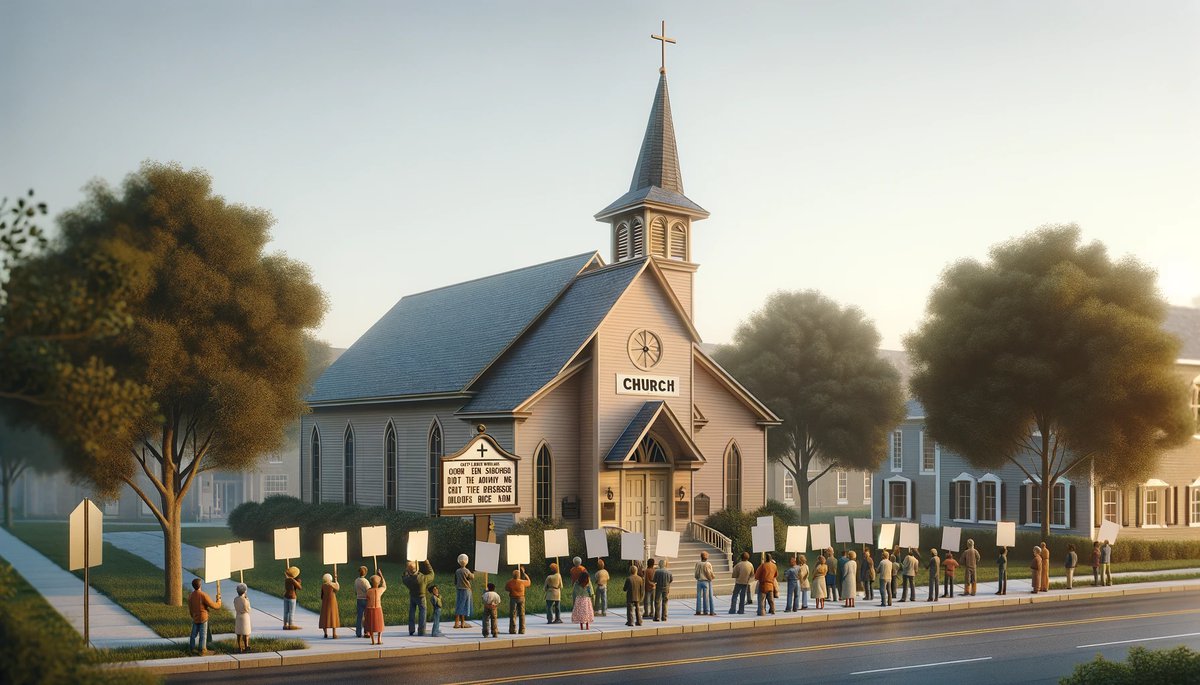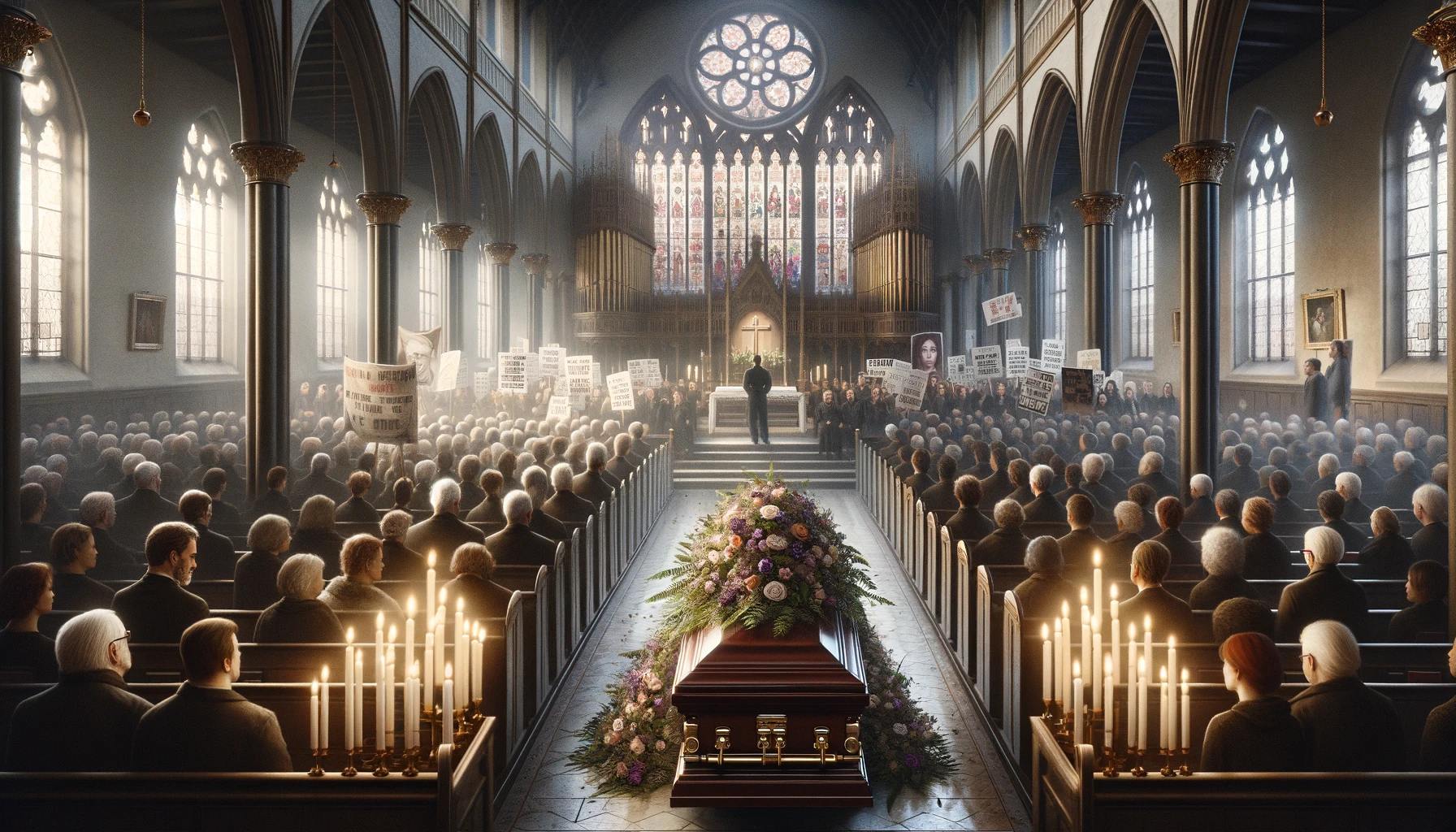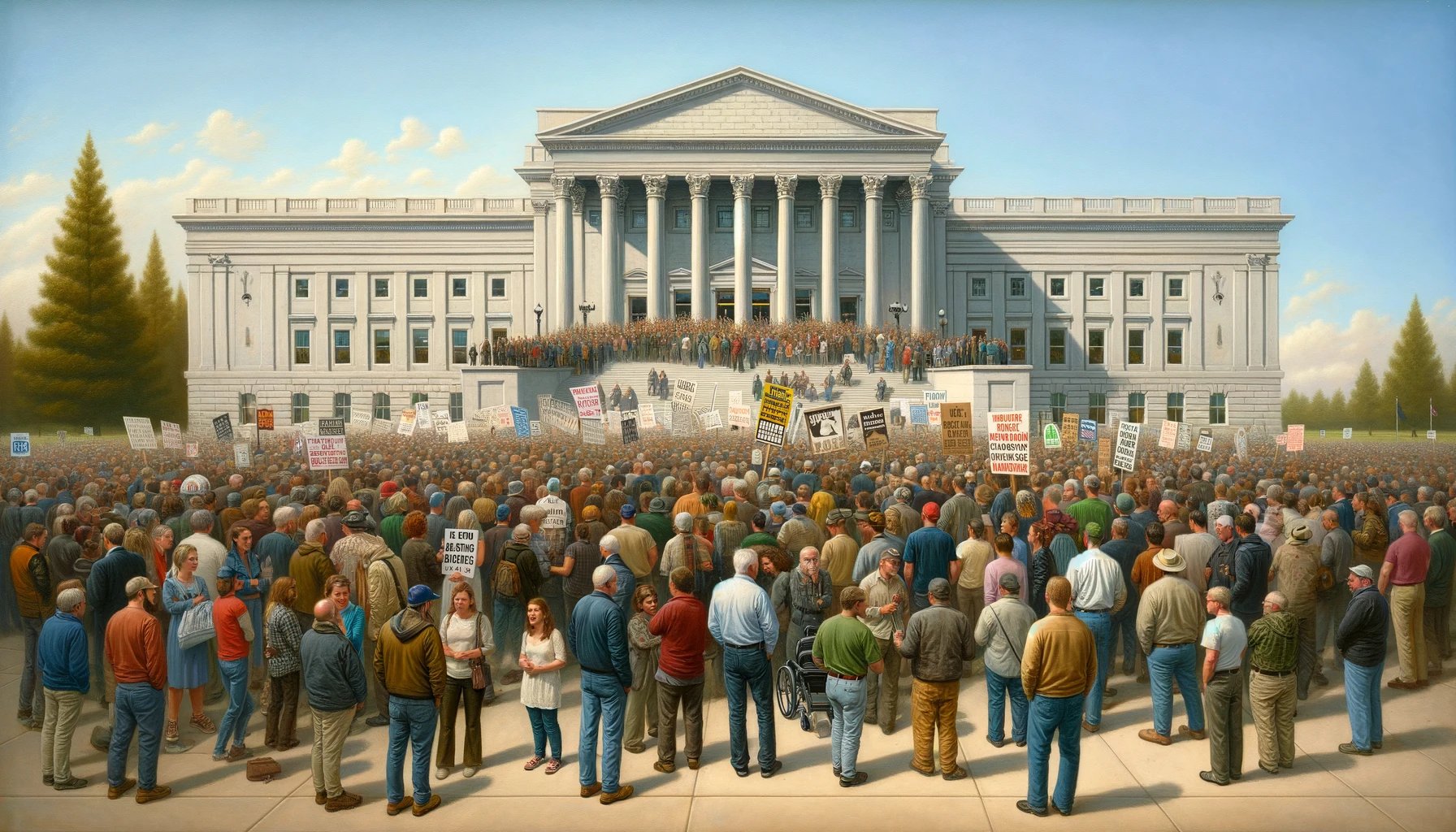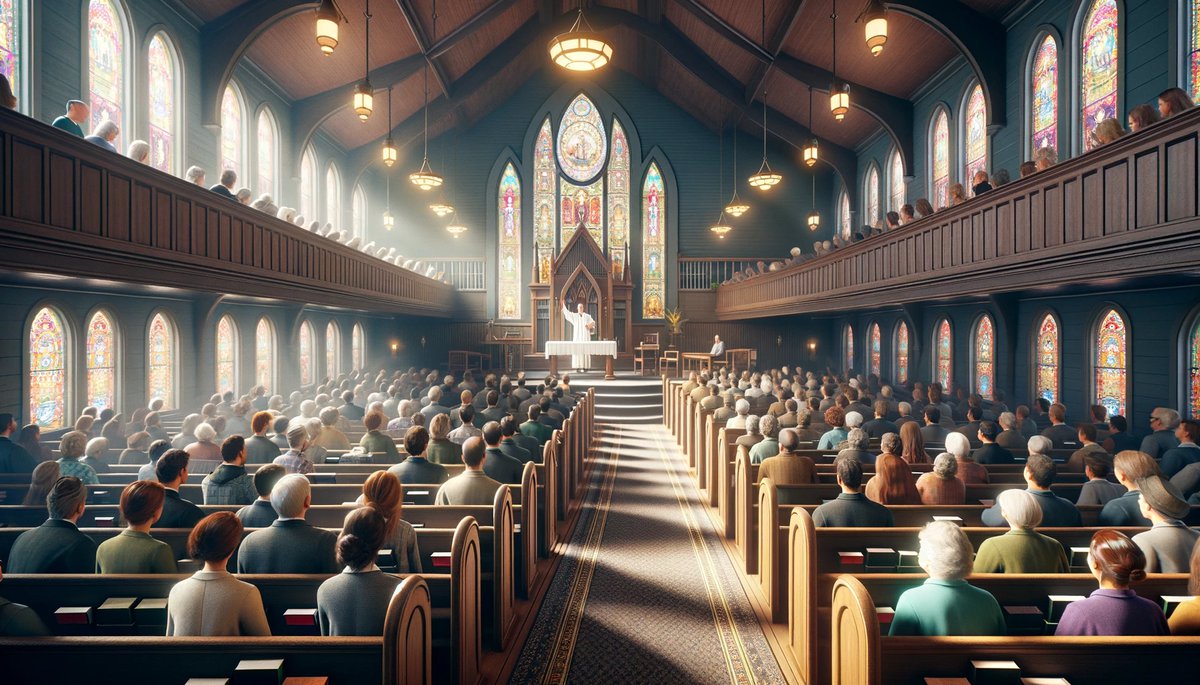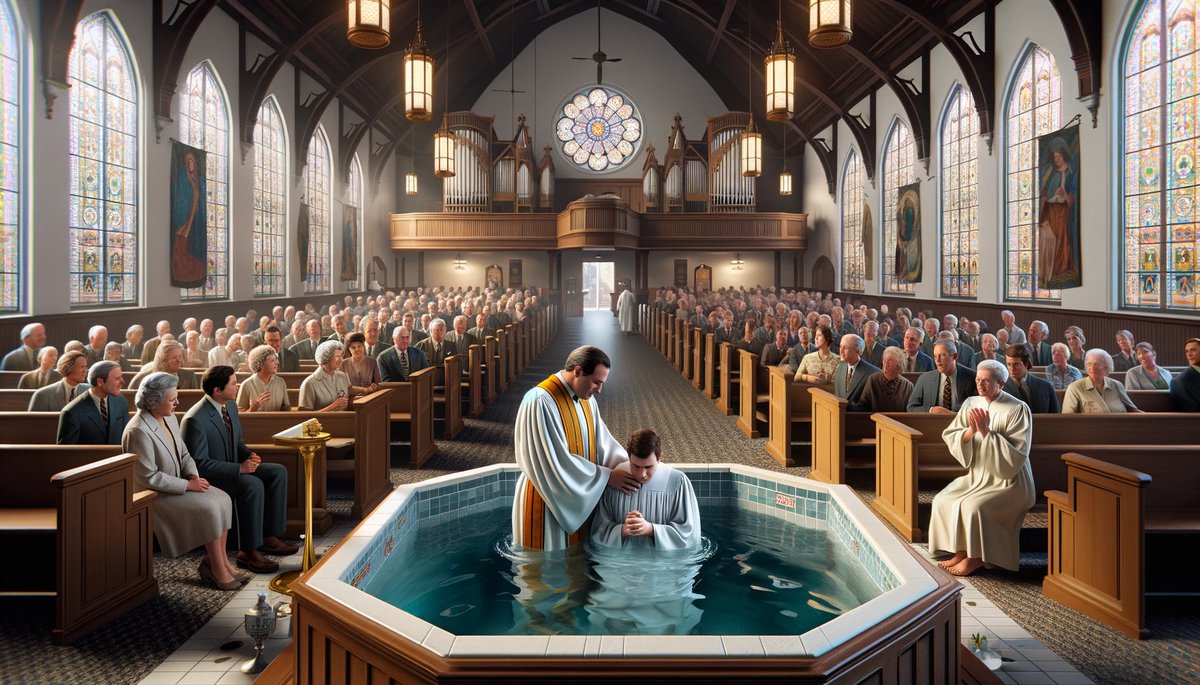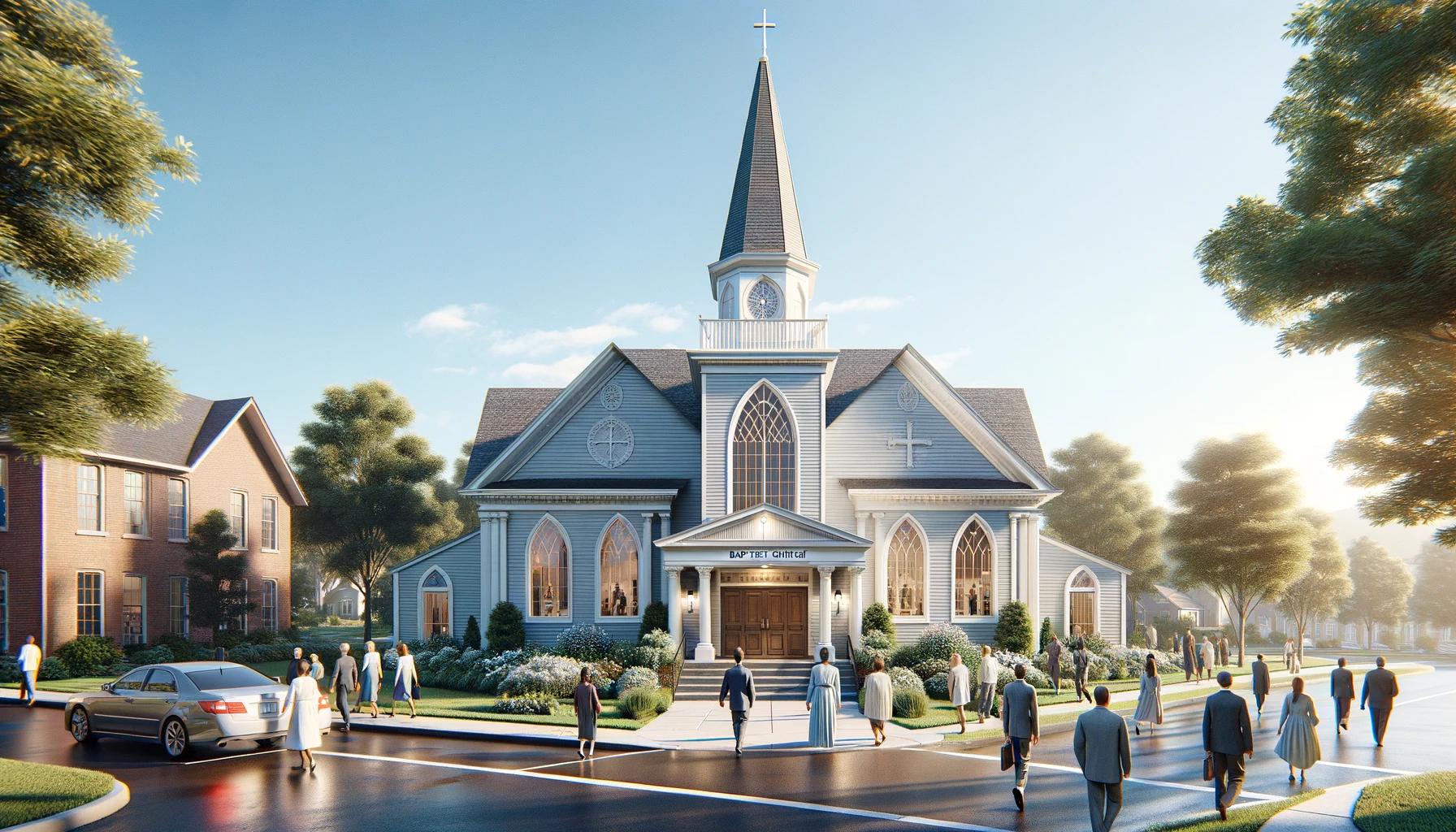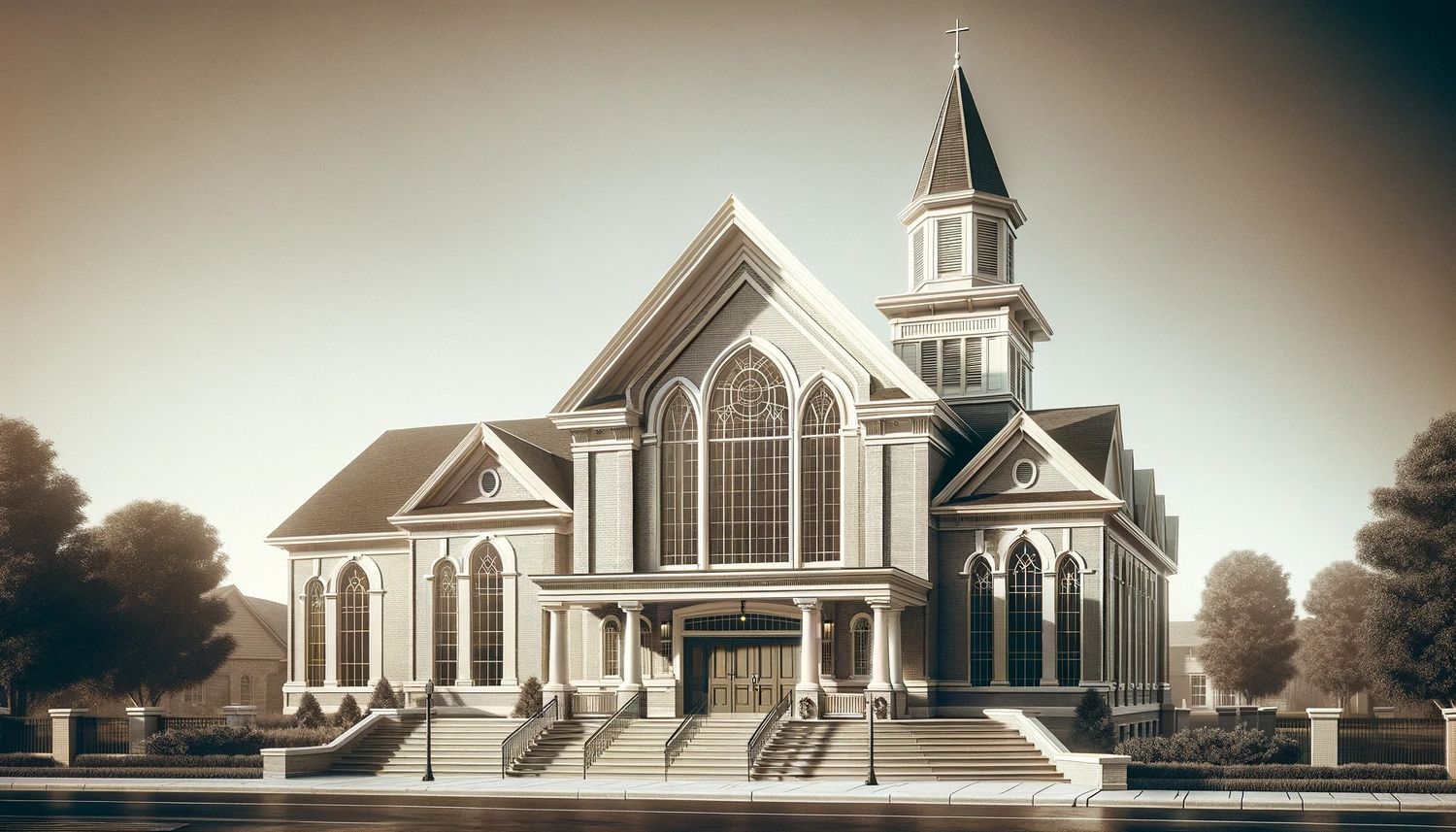Home>Theology and Spirituality>What Does The Westboro Baptist Church Oppose?


Theology and Spirituality
What Does The Westboro Baptist Church Oppose?
Published: February 24, 2024
Jason DeRose, Managing Editor at Christian.net, uses his expertise in religion and journalism to deepen understanding of faith's societal impacts. His editorial leadership, coupled with a strong academic background, enriches the platform’s diverse content, earning him recognition in both journalism and religious circles.
Discover what the Westboro Baptist Church opposes in theology and spirituality. Uncover their controversial beliefs and practices.
(Many of the links in this article redirect to a specific reviewed product. Your purchase of these products through affiliate links helps to generate commission for Christian.net, at no extra cost. Learn more)
Table of Contents
- Introduction
- The Westboro Baptist Church's Beliefs
- The Westboro Baptist Church's Opposition to LGBTQ+ Rights
- The Westboro Baptist Church's Opposition to Other Religions
- The Westboro Baptist Church's Opposition to the United States Government
- The Westboro Baptist Church's Opposition to Mainstream Christianity
- Conclusion
Introduction
The Westboro Baptist Church, based in Topeka, Kansas, is a small independent church known for its extreme ideologies and controversial protests. Founded by Fred Phelps in 1955, the church gained notoriety for its vehement opposition to various societal elements, including LGBTQ+ rights, other religions, the United States government, and mainstream Christianity. The church's actions and beliefs have sparked widespread debate and condemnation, leading to legal battles and public outcry.
The Westboro Baptist Church's fervent opposition to certain groups and ideologies has made it a polarizing figure in contemporary religious and social discourse. Understanding the church's beliefs and the rationale behind its opposition is crucial for comprehending its impact on society and the broader implications of its actions. In the following sections, we will delve into the specific areas of opposition that have defined the Westboro Baptist Church's controversial reputation.
Read more: What Religion Is The Westboro Baptist Church
The Westboro Baptist Church's Beliefs
The Westboro Baptist Church's beliefs are rooted in a strict interpretation of the Bible, particularly emphasizing the concept of divine retribution. The church asserts that God's wrath is directed towards those who engage in behaviors it deems sinful, including homosexuality, adultery, and idolatry. This belief forms the basis of the church's controversial picketing and protests, as it perceives these actions as a means of warning society about the consequences of straying from what it views as God's will.
Central to the church's beliefs is the conviction that the United States and the world at large are steeped in moral decay, and that natural disasters, wars, and other calamities are manifestations of God's judgment. This perspective shapes the church's messaging, which often includes provocative slogans and signs condemning various societal issues.
Furthermore, the Westboro Baptist Church adheres to a strict Calvinist theology, emphasizing predestination and the sovereignty of God. This theological framework underpins the church's uncompromising stance on its beliefs, as it views itself as a vessel for delivering God's message of condemnation and repentance to the world.
The church's beliefs also extend to its views on salvation, with an emphasis on the notion that only a select few are predestined for salvation, while the majority of humanity is destined for eternal damnation. This belief underscores the church's unwavering commitment to its mission, as it sees itself as a beacon of truth in a world it perceives as morally bankrupt.
In summary, the Westboro Baptist Church's beliefs are characterized by a fervent adherence to a strict interpretation of the Bible, a conviction of divine retribution, and a staunch Calvinist theology. These beliefs form the foundation of the church's contentious actions and have contributed to its polarizing reputation in contemporary religious and social discourse.
The Westboro Baptist Church's Opposition to LGBTQ+ Rights
The Westboro Baptist Church is widely known for its vehement opposition to LGBTQ+ rights, a stance that has sparked intense controversy and public outcry. At the core of the church's beliefs is a strict interpretation of the Bible, particularly regarding passages that are perceived as condemning homosexual behavior. This interpretation forms the basis of the church's unwavering stance against LGBTQ+ rights and its vocal condemnation of homosexuality.
The church's opposition to LGBTQ+ rights is prominently displayed through its provocative picketing and protests, where members often brandish signs with inflammatory slogans targeting the LGBTQ+ community. These actions have drawn widespread criticism and legal challenges, as they are viewed as promoting hate speech and discrimination.
Furthermore, the Westboro Baptist Church has been vocal in its opposition to legislative measures aimed at advancing LGBTQ+ rights, such as marriage equality and anti-discrimination laws. The church has actively campaigned against initiatives that seek to grant equal rights and protections to LGBTQ+ individuals, often citing biblical passages to justify its position.
In addition to its public demonstrations, the church has utilized various media platforms to disseminate its anti-LGBTQ+ messaging, further amplifying its opposition to LGBTQ+ rights on a global scale. This approach has contributed to the church's notoriety and has elicited strong reactions from advocacy groups, public figures, and the broader community.
The Westboro Baptist Church's steadfast opposition to LGBTQ+ rights has positioned it at the center of contentious debates surrounding religious freedom, free speech, and the rights of marginalized communities. While the church frames its opposition within the context of religious doctrine, its actions have been widely condemned as promoting intolerance and contributing to the marginalization of LGBTQ+ individuals.
In summary, the Westboro Baptist Church's opposition to LGBTQ+ rights is deeply entrenched in its interpretation of biblical teachings, leading to provocative protests, legal disputes, and widespread condemnation. The church's unwavering stance on this issue has fueled intense public discourse and has underscored the complex intersection of religious beliefs, free speech, and LGBTQ+ rights in contemporary society.
The Westboro Baptist Church's Opposition to Other Religions
The Westboro Baptist Church's opposition extends beyond its stance on LGBTQ+ rights to encompass its views on other religions. Central to the church's beliefs is the conviction that it is the sole proponent of divine truth, and all other religious faiths are deemed as false and condemned. This uncompromising position has led the church to engage in provocative demonstrations and public statements targeting various religious groups, sparking widespread controversy and condemnation.
The church's opposition to other religions is rooted in its interpretation of the Bible, particularly emphasizing passages that assert the exclusivity of Christianity and the condemnation of non-Christian beliefs. This theological framework underpins the church's messaging, which often includes inflammatory slogans and signs denouncing other faiths. The Westboro Baptist Church has targeted religious institutions, events, and figures, using its platform to propagate its views on the perceived falsehood of other religions.
Furthermore, the church's opposition to other religions has manifested in its public denouncement of religious practices and beliefs outside of its own doctrine. The church has utilized various media channels to disseminate its messaging, amplifying its stance on the condemnation of other faiths. This approach has drawn strong reactions from religious communities, advocacy groups, and the broader public, leading to legal challenges and public outcry.
The Westboro Baptist Church's fervent opposition to other religions has positioned it at the center of contentious debates surrounding religious tolerance, freedom of belief, and interfaith relations. While the church frames its opposition within the context of its interpretation of biblical teachings, its actions have been widely criticized as promoting religious intolerance and inciting division.
In summary, the Westboro Baptist Church's opposition to other religions is deeply rooted in its theological convictions, leading to provocative demonstrations, legal disputes, and widespread condemnation. The church's unwavering stance on this issue has fueled intense public discourse and has underscored the complex intersection of religious beliefs and interfaith relations in contemporary society.
The Westboro Baptist Church's Opposition to the United States Government
The Westboro Baptist Church's opposition to the United States government is deeply rooted in its theological and ideological framework. The church vehemently condemns the government for what it perceives as moral and spiritual transgressions, viewing the nation's policies and actions as contrary to the will of God as outlined in its interpretation of the Bible.
Central to the church's opposition is its belief that the United States has strayed from its founding principles and has embraced societal behaviors and policies that it deems as sinful and contrary to God's commands. This perspective is often manifested in the church's provocative protests and public statements, where it denounces government decisions and societal trends that it views as morally reprehensible.
The Westboro Baptist Church has been particularly vocal in its opposition to government initiatives that it perceives as promoting behaviors and lifestyles contrary to its interpretation of biblical teachings. This includes policies related to LGBTQ+ rights, reproductive rights, and secularization, which the church vehemently opposes, often citing biblical passages to justify its position.
Furthermore, the church's opposition to the United States government extends to its messaging on national tragedies and calamities. The church has garnered widespread attention for its controversial picketing at military funerals, where it attributes the nation's misfortunes, including military casualties, to what it views as divine retribution for the country's perceived moral decay.
The church's unwavering stance against the government has positioned it at the center of contentious debates surrounding freedom of speech, separation of church and state, and the limits of public protest. While the church frames its opposition within the context of its interpretation of biblical teachings, its actions have been widely criticized as promoting divisiveness and undermining the principles of civic unity and respect for the nation's institutions.
In summary, the Westboro Baptist Church's opposition to the United States government is deeply entrenched in its theological convictions, leading to provocative demonstrations, legal disputes, and widespread condemnation. The church's steadfast stance on this issue has fueled intense public discourse and has underscored the complex intersection of religious beliefs and civic engagement in contemporary society.
The Westboro Baptist Church's Opposition to Mainstream Christianity
The Westboro Baptist Church's opposition to mainstream Christianity is a defining aspect of its controversial stance within the religious landscape. At the core of this opposition is the church's belief that the majority of Christian denominations have deviated from what it perceives as the true teachings of the Bible. This conviction has led the church to vehemently denounce mainstream Christian churches and their leaders, often employing provocative language and public demonstrations to convey its message.
Central to the Westboro Baptist Church's opposition is its interpretation of biblical passages, particularly those addressing moral conduct and doctrinal purity. The church asserts that many mainstream Christian denominations have compromised on fundamental biblical principles, such as the condemnation of certain behaviors and the exclusive nature of salvation through Christ. This perceived departure from biblical truth forms the basis of the church's condemnation of mainstream Christianity.
The church's opposition to mainstream Christian churches is prominently displayed through its picketing and protests targeting prominent Christian events, congregations, and religious figures. The church often uses inflammatory slogans and signs to convey its message, asserting that mainstream Christian churches have embraced societal trends and moral values that it deems as contrary to the teachings of the Bible. This confrontational approach has elicited strong reactions from mainstream Christian communities and has fueled public debate and legal disputes.
Furthermore, the Westboro Baptist Church has utilized various media platforms to disseminate its messaging, amplifying its stance on the perceived apostasy of mainstream Christian denominations. The church has published numerous materials and online content denouncing mainstream Christian beliefs and practices, further solidifying its opposition within the broader religious discourse.
The church's unwavering opposition to mainstream Christianity has positioned it at the center of contentious debates surrounding religious orthodoxy, doctrinal purity, and the limits of intra-faith criticism. While the church frames its opposition within the context of its interpretation of biblical teachings, its actions have been widely criticized as promoting division within the Christian community and undermining the principles of religious unity and mutual respect.
In summary, the Westboro Baptist Church's opposition to mainstream Christianity is deeply rooted in its theological convictions, leading to provocative demonstrations, legal disputes, and widespread condemnation. The church's steadfast stance on this issue has fueled intense public discourse and has underscored the complex intersection of religious beliefs and intra-faith relations in contemporary society.
Conclusion
The Westboro Baptist Church's fervent opposition to various societal elements, including LGBTQ+ rights, other religions, the United States government, and mainstream Christianity, has positioned it as a polarizing figure in contemporary religious and social discourse. Rooted in a strict interpretation of the Bible and a staunch Calvinist theology, the church's beliefs have propelled it to engage in provocative demonstrations, legal disputes, and widespread condemnation.
The church's unwavering stance on LGBTQ+ rights has sparked intense controversy, leading to legal challenges and public outcry. Its vocal opposition to legislative measures aimed at advancing LGBTQ+ rights has underscored the complex intersection of religious beliefs, free speech, and LGBTQ+ rights in contemporary society.
Furthermore, the Westboro Baptist Church's condemnation of other religions has elicited strong reactions from religious communities, advocacy groups, and the broader public. Its uncompromising position on the exclusivity of Christianity has fueled intense public discourse and has underscored the complex intersection of religious beliefs and interfaith relations in contemporary society.
The church's vehement opposition to the United States government has positioned it at the center of contentious debates surrounding freedom of speech, separation of church and state, and the limits of public protest. While framing its opposition within the context of its interpretation of biblical teachings, the church's actions have been widely criticized as promoting divisiveness and undermining the principles of civic unity and respect for the nation's institutions.
Moreover, the Westboro Baptist Church's condemnation of mainstream Christianity has fueled public debate and legal disputes, eliciting strong reactions from mainstream Christian communities. Its confrontational approach has underscored the complex intersection of religious orthodoxy, doctrinal purity, and the limits of intra-faith criticism in contemporary society.
In conclusion, the Westboro Baptist Church's unwavering opposition to various societal elements has ignited intense public discourse, legal challenges, and widespread condemnation. While the church frames its opposition within the context of its interpretation of biblical teachings, its actions have been widely criticized as promoting intolerance, division, and undermining the principles of religious unity and mutual respect. The church's controversial reputation serves as a testament to the complex and contentious nature of religious beliefs and their impact on contemporary society.

